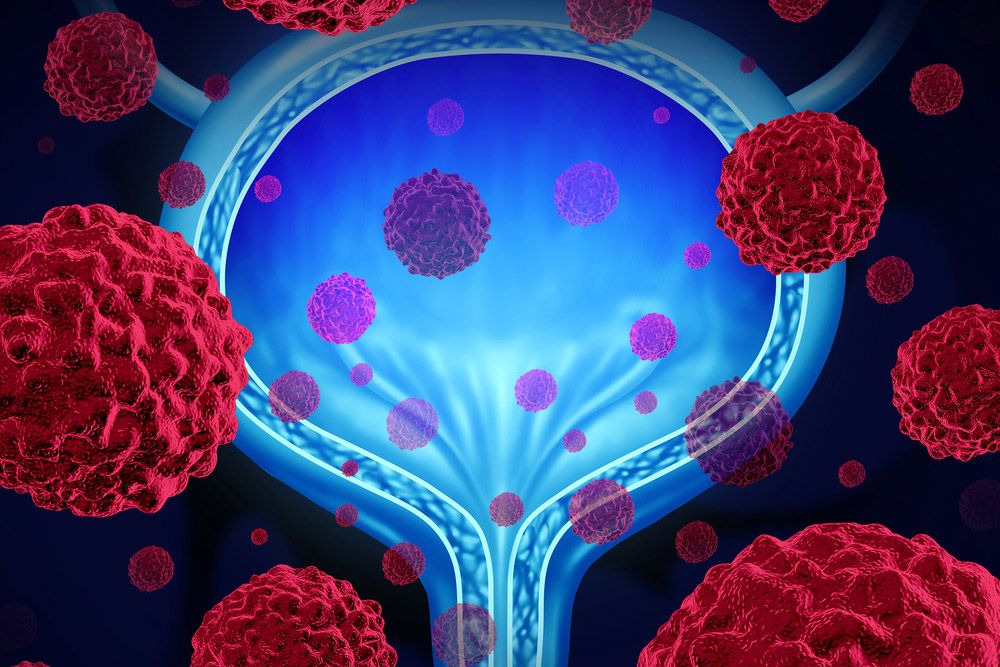PET/CT Lymph Node Staging Doesn't Predict Worse Outcomes After Bladder Cancer Surgery
18F-FDG PET/CT staging of lymph node metastases in patients with bladder cancer undergoing radical cystectomy did not correlate with worse survival outcomes.
18F-FDG PET/CT staging of lymph node metastases in patients with bladder cancer undergoing radical cystectomy did not correlate with worse survival outcomes.

Patients with bladder cancer undergoing a radical cystectomy did not have worse survival when they had lymph node metastases staged with 18F-FDG PET/CT scans, according to a study presented at the 2025 American Urological Association Annual Meeting.
The investigators aimed to compare the survival outcomes of patients who received 18F-FDG PET/CT who were staged and undergoing radical cystectomy with their clinical (cN) and pathological (pN) lymph node metastasis status.
Overall mortality-free survival was assessed in different subgroups. For those with cN-positive/pN-negative disease, survival was 100%, 85% for cN-negative/pN-negative, 43.3% for cN-positive/pN-positive, and 36.9% for cN-negative/pN-positive (P <.0001).
For those in the cN-negative/pN-negative group, 125 patients were at risk at baseline, 108 at 12 months, 78 at 24 months, 55 at 36 months, and 32 at 48 months. In the cN-negative/pN-positive group, 39 patients were at risk at baseline, 22 at 12 months, 11 at 24 months, 4 at 36 months, and 3 at 48 months. For those in the cN-positive/pN-negative group, 13 were at risk at baseline, 10 at 12 months, 7 at 24 months, 4 at 36 months, and 1 at 48 months. Finally, for those in the cN-positive/pN-positive group, 16 were at risk at baseline, 10 at 12 months, 4 at 24 months, 4 at 36 months, and 2 at 48 months.
Regarding cancer-specific mortality survival, 100% of patients survived in the cN-positive/pN-negative group, 89.3% in the cN-negative/pN-negative group, 43.3% in the cN-positive/pN-positive group, and 41.0% in the cN-negative/pN-positive group (P <.0001).
In the cN-negative/pN-negative group, 124 patients were at risk at baseline, 107 at 12 months, 78 at 24 months, 55 at 36 months, and 32 at 48 months. In the cN-negative/pN-positive group, 39 patients were at risk at baseline, 22 at 12 months, 11 at 24 months, 4 at 36 months, and 3 at 48 months. In the cN-positive/pN-negative group, 13 were at risk at baseline, 10 at 12 months, 7 at 24 months, 4 at 36 months, and 1 at 48 months. In the cN-positive/pN-positive group, 16 were at risk at baseline, 10 at 12 months, 4 at 24 months, 4 at 36 months, and 2 at 48 months.
“Lymph node metastases at 18F-FDG PET/CT do not correlate with worse survival outcomes in [patients with bladder cancer] undergoing radical cystectomy, particularly if not confirmed by histology,” Paolo Zaurito, a urology resident from the San Raffaele Hospital, and colleagues wrote in the poster. “Patients with cN-positive/pN-negative status may still achieve favorable oncological outcomes after radical cystectomy.”
Overall, 195 patients were enrolled with a median age of 68 years (IQR, 61-74). Of note, 69% of patients received neoadjuvant therapy before surgery. Additionally, 64% of patients had pT2 stage and 36% had pT3 or higher.
A total of 65% of patients had cN-negative/pN-negative disease, 20% had cN-negative/pN-positive, 6.7% had cN-positive/pN-negative, and 8.3% had cN-positive/pN-positive disease.
The median follow-up was 24 months, and through the Cox regression models, patients with cN-negative/pN-positive (HR, 13.0) and cN-positive/pN-positive (HR, 10.2) status had higher cancer-specific mortality. Regarding overall mortality, results were similar for cN-negative/pN-positive (HR, 7.12) and cN-positive/pN-positive (HR, 6.27) status (P <.01).
The trial was conducted at 1 high-volume center from 2014 to 2022. Patients could be given neoadjuvant therapy based on the physician’s decision prior to surgery. Before undergoing radical cystectomy, patients were staged with 18F-FDG PET/CT. If a patient was undergoing neoadjuvant therapy, they were restaged after completing treatment.
References
Zaurito P, Longoni M, Scilipoti P, et al. Clinical lymphadenopathies in bladder cancer patients staged with 18F-FDG PET/CT: oncologic outcomes in patients treated with radical cystectomy and pelvic lymph node dissection. Presented at the 2025 American Urological Association Annual Meeting. April 26-29, 2025; Las Vegas, NV. Poster IP24-07